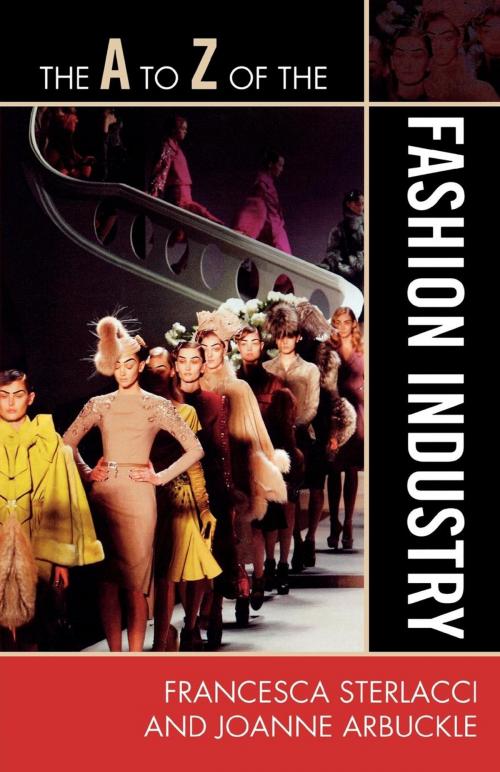The A to Z of the Fashion Industry
Business & Finance, Marketing & Sales, Retailing, Nonfiction, Art & Architecture, General Art, Reference, Fashion| Author: | Joanne Arbuckle, Francesca Sterlacci | ISBN: | 9780810870468 |
| Publisher: | Scarecrow Press | Publication: | October 26, 2009 |
| Imprint: | Scarecrow Press | Language: | English |
| Author: | Joanne Arbuckle, Francesca Sterlacci |
| ISBN: | 9780810870468 |
| Publisher: | Scarecrow Press |
| Publication: | October 26, 2009 |
| Imprint: | Scarecrow Press |
| Language: | English |
The history of clothing begins with the origin of man, and fashionable dress can be traced as far back as 25,000 years ago. Recent scientific explorations have uncovered graves in northern Russia with skeletons covered in beads made of mammoth ivory that once adorned clothing made of animal skin. The Ancient Egyptians, Greeks, and Romans each made major contributions to fashion's legacy from their textile innovations, unique clothing designs and their early use of accessories, cosmetics, and jewelry. During the Middle Ages, 'fashion trends' emerged as trade and commerce thrived allowing the merchant class to afford to emulate the fashions worn by royals. However, it is widely believed that fashion didn't became an industry until the industrial and commercial revolution during the latter part of the 18th century. Since then, the industry has grown exponentially. Today, fashion is one of the biggest businesses in the world, with hundreds of billions of dollars in turnover and employing tens of millions of workers. It is both a profession, an industry, and in the eyes of many, an art. The A to Z of the Fashion Industry examines the origins and history of this billion-dollar industry. This is done through a chronology, an introductory essay, a bibliography, and hundreds of cross-referenced entries on designers, models, couture houses, significant articles of apparel and fabrics, trade unions, and the international trade organizations.
The history of clothing begins with the origin of man, and fashionable dress can be traced as far back as 25,000 years ago. Recent scientific explorations have uncovered graves in northern Russia with skeletons covered in beads made of mammoth ivory that once adorned clothing made of animal skin. The Ancient Egyptians, Greeks, and Romans each made major contributions to fashion's legacy from their textile innovations, unique clothing designs and their early use of accessories, cosmetics, and jewelry. During the Middle Ages, 'fashion trends' emerged as trade and commerce thrived allowing the merchant class to afford to emulate the fashions worn by royals. However, it is widely believed that fashion didn't became an industry until the industrial and commercial revolution during the latter part of the 18th century. Since then, the industry has grown exponentially. Today, fashion is one of the biggest businesses in the world, with hundreds of billions of dollars in turnover and employing tens of millions of workers. It is both a profession, an industry, and in the eyes of many, an art. The A to Z of the Fashion Industry examines the origins and history of this billion-dollar industry. This is done through a chronology, an introductory essay, a bibliography, and hundreds of cross-referenced entries on designers, models, couture houses, significant articles of apparel and fabrics, trade unions, and the international trade organizations.















